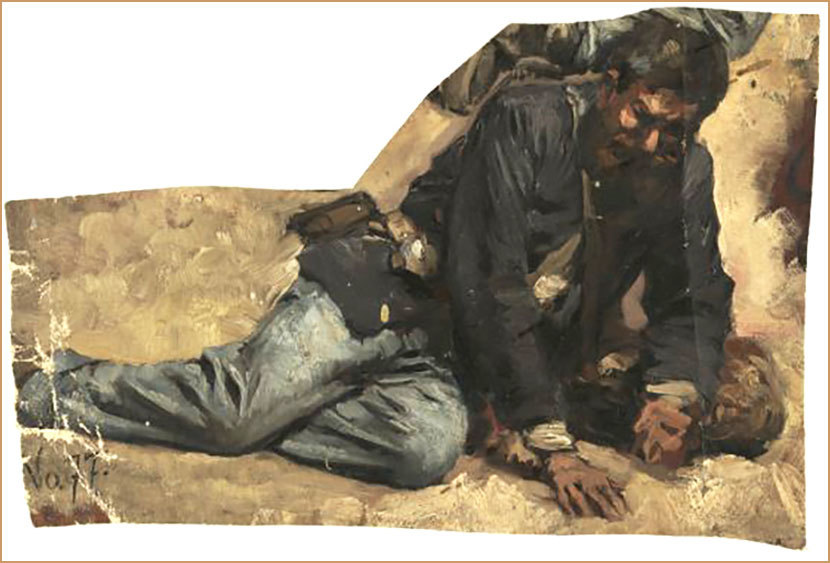Stephen Crane (1871–1900)
From Stephen Crane: Prose & Poetry

Stephen Crane was born 150 years ago today, on November 1, 1871.
For 125 years, readers have marveled at the uncanny verisimilitude with which Stephen Crane captured the extreme sights, sounds, and sensations of a Civil War battlefield in his 1895 novel The Red Badge of Courage. Though the time and place of Henry Fleming’s baptism by fire are never precisely identified in the story, Crane’s model was the Battle of Chancellorsville in 1863—an event that took place eight years before he was born.
How did he do it? Certainly he heard stories from one of his uncles, a veteran and doctor who had been at Chancellorsville. His close friend Frederic Lawrence also remembered how, when they were children in the New York town of Port Jervis, Crane “had never failed to draw out from Civil War veterans their memories, their experiences in the everyday life of an army.”
Yet perhaps most important, Crane spent much of his time during the novel’s two-year gestation with the painter Corwin Knapp Linson. In the artist’s studio, Crane pored over old issues of Century Magazine containing “Battles and Leaders of the Civil War,” a series published from 1884 through 1887 that gathered eyewitness accounts by high-ranking veterans, both Union and Confederate, alongside maps, photographs, and drawings of the conflict. Yet according to Linson, Crane’s comment on that historical chronicle was, “I wonder that some of those fellows don’t tell how they felt in those scraps. They spout enough of what they did, but they’re as emotionless as rocks.”
How it felt became Crane’s focus in his depiction of Henry Fleming’s first “scrap.” Readers today are still in awe of the imaginative capacity that allowed a writer in his early twenties, who had never seen combat, to render the heat of battle with such you-are-there immediacy. In addition to his famous novel, Crane channeled his research into the creation of seven masterful short stories, and in his new biography of Crane, the novelist Paul Auster makes the case that the best of them is “An Episode of War,” which we present as our Story of the Week selection.



